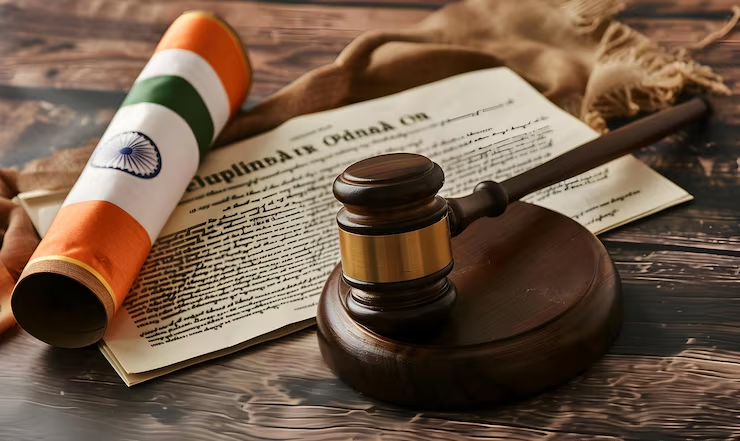Property transactions in India involve significant financial, emotional, and legal stakes. Whether purchasing a home, transferring inherited land, or investing in commercial property, each transaction is governed by a complex legal framework designed to protect ownership and ensure transparency. In fast-developing cities like Bhopal and Indore, where real estate activity continues to expand, understanding property laws is essential for every citizen.
This educational post explains what property law is in India, how it regulates ownership and transfer, the critical factors to consider before buying property, and how property lawyers in Bhopal and Indore contribute to secure and lawful transactions. The discussion also outlines the property law practice areas of Chansoriya Law Chambers, a firm engaged in civil and property law matters.
Understanding Property Laws in India
Property law in India governs the ownership, transfer, and use of property. It ensures that transactions are carried out transparently and protects the rights of both owners and buyers. The foundation of Indian property law rests on several key pieces of legislation:
The Transfer of Property Act, 1882—Defines how property can be transferred between living persons.
The Indian Contract Act, 1872—Governs agreements related to property transactions.
The Registration Act, 1908—Mandates registration of property documents for legal validity.
The Indian Stamp Act, 1899—Regulates the payment of stamp duty on documents.
The Real Estate (Regulation and Development) Act, 2016 (RERA)—Protects buyers and ensures fair practices in real estate.
Personal Laws on Succession and Inheritance—Define property rights under Hindu, Muslim, and other personal laws.
Together, these laws maintain balance, accountability, and fairness in property dealings across India.
Types of Property in Indian Law
Under Indian law, property is categorized in several ways, each carrying unique legal implications:
Movable and Immovable Property—Immovable includes land and buildings, while movable covers vehicles, machinery, and personal items.
Tangible and Intangible Property—Tangible assets can be physically possessed; intangible assets include rights like trademarks or copyrights.
Private and Public Property—Ownership by individuals versus ownership by the government or public authorities.
Ancestral and Self-Acquired Property—Ancestral property passes through generations, while self-acquired property is obtained through an individual’s effort or purchase.
Property lawyers in Bhopal and Indore routinely analyze these classifications while handling land transfers, inheritance matters, and ownership disputes.
Regulation of Property Ownership and Transfer
Property ownership in India is not absolute—it is regulated by statutory laws to ensure legitimacy and public record. Some of the principal requirements include:
Registered Deeds: All transactions involving immovable property worth more than ₹100 must be registered under the Registration Act, 1908.
Stamp Duty Payment: Documents must be duly stamped under the Indian Stamp Act, 1899.
RERA Compliance: Builders and developers must register their projects under RERA, giving buyers a layer of protection.
Mutation and Revenue Records: After transfer, the buyer’s name must be updated in the land or municipal records to establish ownership.
In Bhopal and Indore, adherence to these procedures is essential, given the rise in urban property transactions and real estate investments.
Key Legal Factors to Verify Before Buying Property
A legally sound property transaction requires detailed due diligence. Buyers should consider the following points before making a purchase:
- Title Verification
Ensure the seller has a clear and marketable title. Lawyers generally review the ownership history spanning at least 30 years to confirm that there are no disputes or claims.
- Encumbrance Certificate
This certificate from the sub-registrar’s office confirms that the property is not mortgaged or under any financial liability.
- Property Tax Records
Verification of tax receipts ensures that municipal taxes have been paid and there are no pending dues.
- Approved Plans and Building Permissions
Buyers must ensure that the construction complies with approved municipal plans to avoid penalties or demolition risks.
- RERA Registration
For under-construction projects, checking RERA registration helps verify the project’s authenticity and delivery timelines.
- Sale Deed and Possession Letter
The Sale Deed transfers ownership rights, while the Possession Letter confirms physical possession. Both must be legally valid and registered.
- Mutation and Record of Rights
Post-purchase, mutation of ownership in local records secures legal recognition of the buyer’s title.
Role of Property Lawyers in Legal Transactions
Property transactions involve numerous legal formalities that, if neglected, can result in long-term disputes. The property lawyers in Bhopal and Indore perform several crucial tasks to ensure compliance and protection, including
Drafting, reviewing, and registering sale, lease, and gift deeds.
Conducting title verification and due diligence reports.
Checking encumbrances and pending litigation.
Advising on stamp duty, taxation, and property registration procedures.
Representing clients before local authorities for land mutation or conversion.
Managing disputes related to ownership, possession, or boundary demarcation.
Advising on inheritance, succession, and partition matters.
Through their expertise, lawyers ensure that each transaction meets statutory standards and that ownership rights are legally protected.
Common Property Disputes in India
Disputes related to property are among the most frequent civil cases in India. Common issues include:
Ownership Disputes: Arising from unclear titles or unregistered transfers.
Boundary Conflicts: Misunderstandings about physical boundaries or measurements.
Encroachment: Illegal occupation or unauthorized construction on another’s land.
Builder-Buyer Conflicts: Delays or violations of project terms.
Inheritance and Partition Disputes: Arising among family members over ancestral property.
The property lawyers in Bhopal and Indore assist individuals in resolving such matters through civil litigation, mediation, and negotiation, depending on the nature of the conflict.
Legal Remedies Available in Property Matters
Indian law provides several remedies for individuals facing property-related disputes:
Declaratory Suit: To establish ownership rights.
Injunction: To prevent illegal construction or possession.
Specific Performance: To compel the completion of a property transaction as per the agreement.
Partition Suit: To divide ancestral property among co-owners.
Eviction Proceedings: Against unauthorized occupants.
Legal remedies ensure that property rights remain enforceable and protected within the judicial system.
Chansoriya Law Chambers: Area of Practice in Property Law
Chansoriya Law Chambers is engaged in civil and property law practice, handling matters related to ownership disputes, title verification, registration, succession, and property compliance. The chamber’s work includes:
Title search and due diligence.
Drafting and registration of deeds and agreements.
Land acquisition, transfer, and registration under local laws.
Civil litigation concerning possession, encroachment, and boundary disputes.
Advisory services on property succession and partition matters.
This practice area reflects a comprehensive engagement with property law—aligning legal expertise with procedural compliance and statutory interpretation. The focus remains on ensuring legality and clarity in every stage of property dealings.
The Importance of Legal Awareness in Real Estate
Many individuals rely on informal advice when buying property, often overlooking crucial legal verifications. Such oversight can lead to financial loss or prolonged litigation. Awareness of property laws and the role of property lawyers in Bhopal and Indore empowers citizens to make informed decisions and protect their rights effectively.
Proper legal consultation before signing or registering property documents ensures that every transaction adheres to statutory and procedural requirements. Legal due diligence not only prevents fraud but also provides long-term peace of mind.
Conclusion
Property ownership is one of the most valuable legal rights in India, and understanding its governing laws is essential for every buyer, seller, and inheritor. Property laws regulate ownership, transfer, and possession to maintain justice and order in society.
In rapidly developing regions like Bhopal and Indore, property transactions must align with statutory laws, registration requirements, and local regulations. The property lawyers in Bhopal and Indore play a vital role in ensuring that each transaction is lawful, transparent, and secure.
With sound legal guidance, clear documentation, and responsible due diligence, individuals can safeguard their assets and contribute to a transparent and accountable real estate environment—one where legal awareness is the foundation of ownership.





